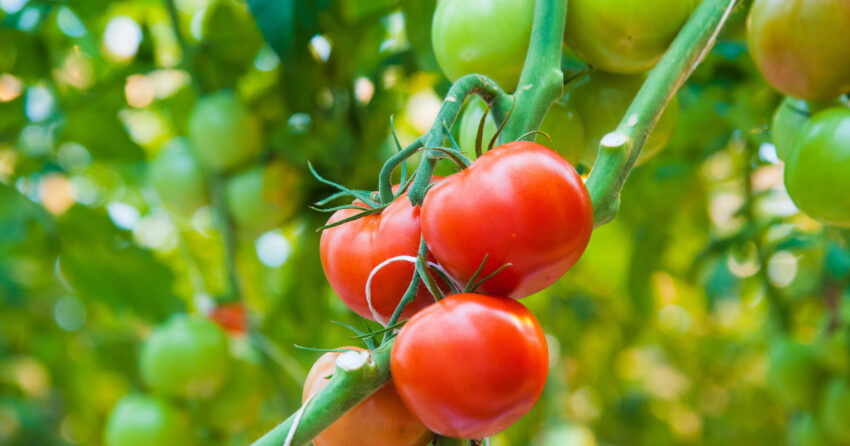Ah, the tomato. A symbol of summer’s bounty, a versatile ingredient in countless dishes, and a source of pride for any home gardener. But nurturing these juicy fruits from delicate seedlings to harvest-ready bounty requires giving your tomato plants the nutrients they crave. Here’s where organic fertilizers come in, offering a natural way to nourish your plants and promote a thriving tomato jungle.
Why Organic Fertilizers for Tomatoes?
Organic fertilizers are derived from natural sources like animal manure, compost, and mineral-rich rock dust. They offer a multitude of benefits for both your tomatoes and the environment:
- Sustained Release: Unlike synthetic fertilizers that deliver a quick nutrient burst, organic options release nutrients gradually over time, mimicking a natural slow-release process. This reduces the risk of burning your plants and ensures a steady supply of nourishment for consistent growth.
- Improved Soil Health: Organic fertilizers enrich the soil with beneficial microbes, promoting healthy soil structure and drainage. This happy habitat for microbes fosters better nutrient uptake for your tomatoes.
- Environmentally Friendly: Organic fertilizers are derived from renewable resources and avoid harsh chemicals that can harm the environment. By using them, you’re contributing to a more sustainable gardening practice.
Top 9 Organic Fertilizers for Your Tomato Plants:
-
Compost: The king of organic fertilizers, compost is a nutrient-rich powerhouse created from decomposed organic matter. It provides a broad spectrum of nutrients, improves soil structure, and feeds the beneficial microbes in your soil. Aim for aged, well- decomposed compost for the best results.
-
Aged Manure: Cow manure, chicken manure, and composted horse manure are all excellent organic fertilizers for tomatoes. However, be cautious with fresh manure, as it can burn your plants. Opt for aged manure that’s been composted for at least six months to ensure it’s safe and ready to use.
-
Blood Meal: A nitrogen powerhouse, blood meal offers a quick boost to your tomato plants’ vegetative growth, encouraging strong stems and lush foliage. Apply it sparingly and only during the early stages of growth, as too much nitrogen can hinder fruit production.
-
Fish Emulsion: This liquid fertilizer, derived from processed fish, provides a readily available source of nitrogen, phosphorus, and potassium – the holy trinity for happy tomato plants. Fish emulsion can also deter some pests with its strong odor. Be mindful of the fishy smell, though!
-
Rock Phosphate: Tomatoes have a moderate phosphorus need, and rock phosphate provides a slow-release source of this essential nutrient. It’s particularly beneficial for amending soil that’s naturally low in phosphorus.
-
Kelp Meal: Harvested from seaweed, kelp meal is a treasure trove of micronutrients, including potassium, magnesium, and calcium. It also contains beneficial plant hormones that can promote overall plant health and stress tolerance.
-
Epsom Salt: While not a complete fertilizer, Epsom salt is a fantastic source of magnesium, a crucial nutrient for photosynthesis and chlorophyll production. Adding a sprinkle of Epsom salt around the base of your tomato plants a few times during the growing season can enhance their overall health and fruit quality.
-
Eggshells: A fantastic source of calcium, eggshells are a natural way to prevent blossom end rot, a common tomato ailment. Crush eggshells finely and sprinkle them around the base of your plants or add them to your compost pile.
-
Coffee Grounds: Used coffee grounds add organic matter to your soil and provide a slow-release boost of nitrogen. They can also help improve soil drainage. However, use them in moderation as too much acidity can be detrimental.
Tips for Using Organic Fertilizers:
- Test Your Soil: Before fertilizing, it’s wise to conduct a soil test to determine your soil’s nutrient profile. This will help you tailor your fertilizing strategy to address any specific deficiencies.
- Start Early: Amend your soil with compost or aged manure before planting your tomatoes. This creates a nutrient-rich foundation for your plants to thrive in.
- Follow Instructions: Always adhere to the recommended application rates for each organic fertilizer you use. Overfertilizing can harm your plants.
- Be Consistent: Apply organic fertilizers regularly throughout the growing season to ensure a steady supply of nutrients for your tomatoes.
- Mulch: Apply a layer of organic mulch around your tomato plants to retain moisture, suppress weeds, and gradually decompose, adding nutrients to the soil.
By harnessing the power of organic fertilizers, you can nurture vibrant tomato plants that reward you with an abundance of delicious, homegrown tomatoes. So, embrace these natural methods, nourish your soil, and watch your tomato plants flourish!

